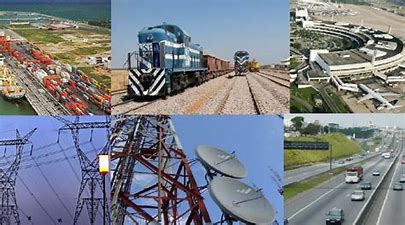Trade group will present document to presidential candidates
07/06/2022

Infrastructure companies advocate the creation of a floor for public investments, a reindustrialization policy and an integrated development agenda for the country. The proposals were put together by the Brazilian Association of Infrastructure and Basic Industry (Abdib) in a document that will be presented to presidential candidates. Brazil will hold elections in October.
“Since 2016, we have seen important advances in regulation, privatization and governance. But this was not accompanied by public investments, which today are at an unacceptable level,” said Venilton Tadini, head of the association. “We are not against the spending cap, but we are in favor of a floor for investments and a limit for current expenses,” he said.
In its proposals, Abdib emphasizes the privatization agenda, but reinforces the need to resume public works. “There are limits to private-sector participation. The concessions program itself has shown signs of fatigue. Today the interest rate scenario is different from recent years, and costs have increased,” Mr. Tadini said.
For Mr. Tadini, it is necessary to believe in the perspective of quality public investments, unlike what was seen in the past – for example, with the Growth Acceleration Program (PAC), which boosted public investments but ended up generating a series of abandoned projects across the country.
“Abandoned construction works are the result of poorly structured projects. Today we see an advance in governance, the control bodies have learned a lot and there has been an evolution in structuring,” he said.
The view is that, even in the short term, it would already be possible to unlock relevant amounts of investments in infrastructure with quality. “The country is at such a low level that the necessary works are very basic, like road resurfacing, maintenance of structures, simple projects that federal agencies are able to do without problems. Now, for larger structuring projects, new public-private partnerships, it would be another case, it is something that would require planning.”
The transportation and logistics sector is the one with the largest investment deficit in Brazilian infrastructure, according to the document prepared by Abdib. In 2021, the gap reached R$166 billion. In total, R$30.1 billion were invested in the segment, equivalent to 0.35% of GDP. The association says that this level must rise to R$196.2 billion per year (2.26% of GDP) for the country to reduce its bottlenecks in the next decade.
Mr. Tadini also highlights the investment gap in the basic sanitation segment, which reached R$22 billion last year. Although it is a smaller deficit in terms of volume, it has a very high social and environmental impact. “It’s a humanitarian issue,” he said.
Altogether, Abdib argues that the country should invest, per year, 4.3% of its GDP in infrastructure over 10 years.
In its letter of proposals, Abdib also tries to point out ways to guarantee the fiscal space necessary for the expansion of public investments, besides concessions. The association advocates a broad plan for reforms, which could be presented within the first 100 days of the government.
The agenda includes three points: tax and administrative overhauls and a change in the fiscal regime defined by the spending cap rule, to guarantee the drop in current expenses and the increase of investments in infrastructure.
Furthermore, Abdib proposes a reindustrialization policy for the country, with incentives focused on strategic segments.
“There is a lack of dialogue between the infrastructure and industry programs. This causes the country to miss huge opportunities. If there had been dialogue with the industry during the privatization of the telecommunications sector, today we could have global giants capable of exporting technology. Today we see the same situation with basic sanitation; there is no dialogue between the investment policy and the development of national industry,” Mr. Tadini says.
*By Taís Hirata — São Paulo
Source: Valor International
